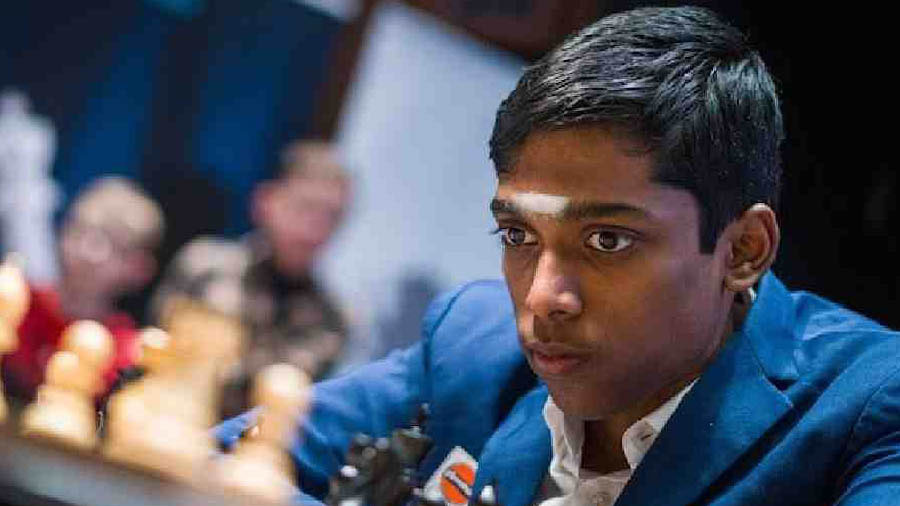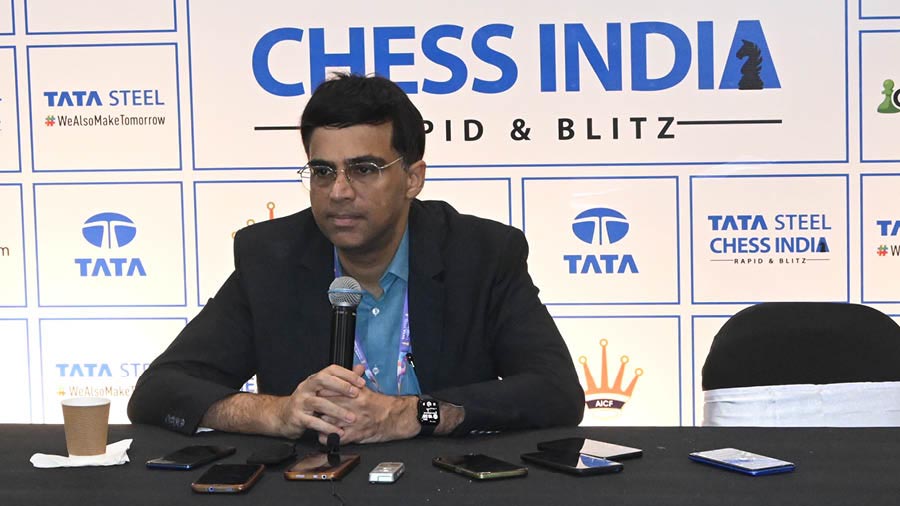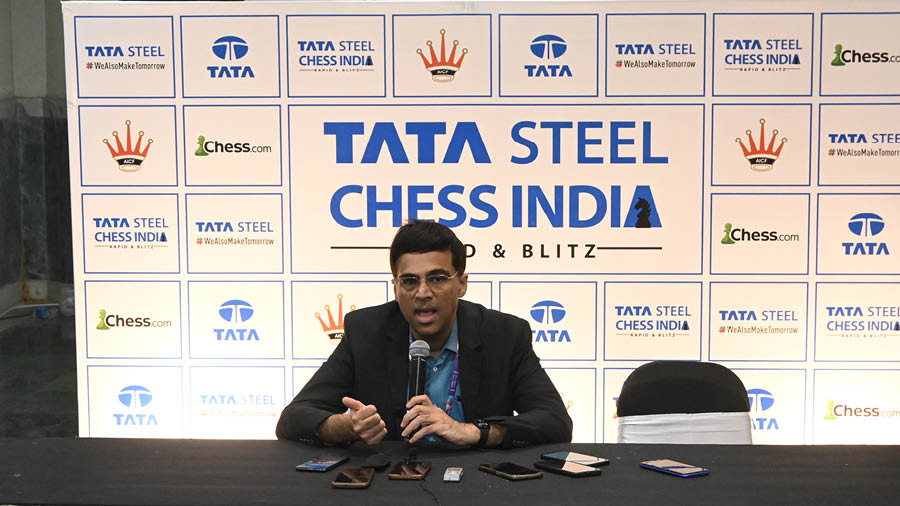On September 1, Viswanathan Anand officially became India’s second-highest ranked chess player in the world, with a ranking of nine and a FIDE score of 2754. One spot above, with four more points, was Dommaraju Gukesh, who displaced Anand as India’s numero uno in chess, making history in the process. Not since July 1986 has anyone not named Anand held the mantle of being the best at chess from India, an achievement that is as impressive, if not more, as Anand’s five world championships.
Four days later, on September 5, Anand was at Bhasha Bhawan (part of the National Library) in Alipore as part of the Tata Steel Chess India: Rapid & Blitz tournament. Even with some of the game’s finest grandmasters in town, the limelight was inevitably on the 53-year-old as he addressed a press conference in the early evening hours, taking a number of questions from My Kolkata.
‘These youngsters seem motivated enough, so that’s a good thing for Indian chess’

Anand analysed why fatigue could have been a factor in Rameshbabu Praggnanandhaa’s narrow loss in the FIDE World Cup final against Magnus Carlsen TT Archives
Following Rameshbabu Praggnanandhaa’s recent loss to Magnus Carlsen in the FIDE World Cup final, Anand had said that fatigue might have played a role in the outcome. Elaborating on that, Anand added, “I think it’s a possible explanation. It could be other things as well because, generally, fatigue is a big part of chess in modern times. The number of events you play is much higher, [which means] you play many more games in a day. The tension or stress of getting multiple results in a day is quite a lot. Chess has sped up a lot and that has some role to play in it. Physical fitness is very important because all the chess players across the world work on physical fitness as a means to tackle fatigue.”
Having already labelled the current lot of Indian chess prodigies as the “golden generation of Indian chess,” the deputy president of FIDE shared his thoughts on what they need to do to attain long-term success and fulfil their immense potential: “You have to understand what motivates you, and you have to maintain that motivation to get consistency in chess. You may have a good result against a player once, but they’ll go back and get their homework done before the next match. It’s about constantly raising your levels in order to get results consistently. These youngsters seem motivated enough, so that’s a good thing for Indian chess.”
‘You don’t just want to be a tourist at the highest level, you want to live there!’

Success is repeating the right process, suggested Anand Amit Pramanik
Lastly, with a couple of Indian players on the brink of the Candidates (the final tournament to determine the challenger for the World Chess Championship, currently held by China’s Ding Liren), and Praggnanandhaa having already made it, Anand spoke about the level required to be among the best in the world. “You don’t just want to be a tourist at the highest level, you want to live there! It’s nice to make the Candidates, but it’s about consistently being there and showing that you belong at the level. Gukesh can still make the Candidates and Praggnanandhaa has already qualified. Now, it’s about winning the big tournaments. Not once, but on a regular basis. Winning the World Cup and qualifying [for the Candidates] is a good thing, but it’s about repeating that process over and over again to remain at the top.”
